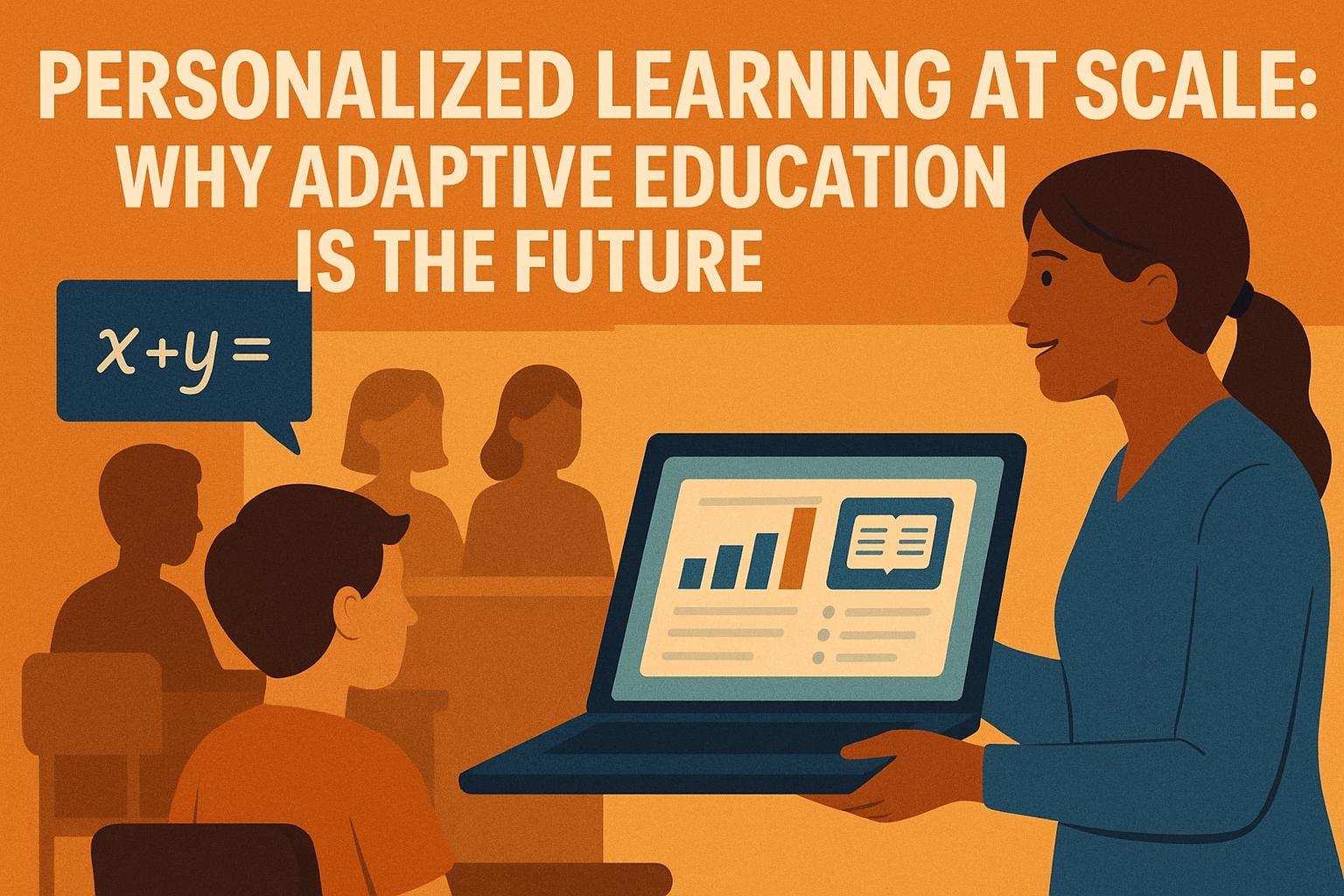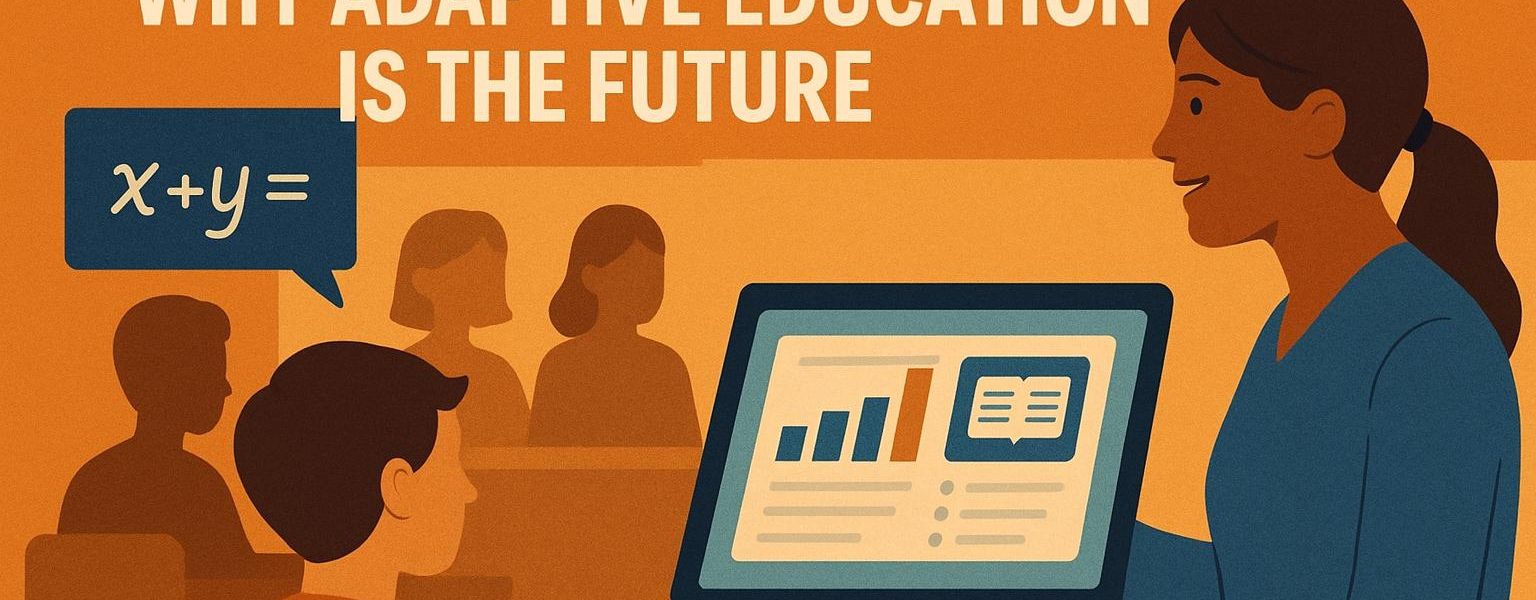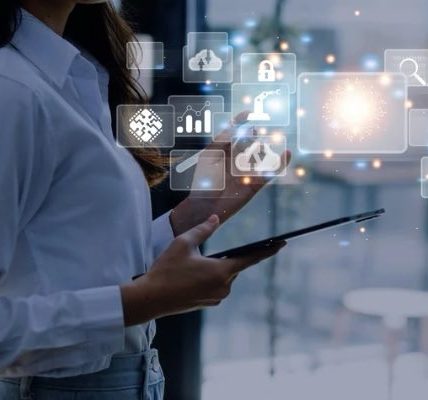For most of history, education has followed the same template: one teacher, one curriculum, one pace — delivered to many students at once. While this model has reached millions, it has also left many behind. Some learners move too quickly, others too slowly, and most struggle to see how lessons connect to their unique strengths and goals. In 2025, Artificial Intelligence is rewriting this story, introducing adaptive education that promises to deliver personalized learning at scale. This is not just a trend; it may well be the future of education.

The Limitations of Traditional Learning
In a conventional classroom, teachers face the impossible task of meeting dozens of students at once. Even the most skilled educator cannot simultaneously adapt lessons to suit every learner’s pace, style, and curiosity. The result? High achievers may feel bored, struggling students may feel left behind, and average learners often remain unchallenged. Education becomes about survival, not excellence.
What Adaptive Learning Means
Adaptive learning uses AI-driven systems to analyze a learner’s progress in real time and adjust content accordingly. If a student struggles with algebra, the system provides more practice and explanations. If another excels in literature, it offers advanced material to keep them engaged. It is like having a personal tutor for every student, available around the clock.
Why Personalized Learning Matters
Boosting engagement: When lessons match a learner’s interests and pace, motivation increases dramatically.
Improving retention: Adaptive systems ensure learners revisit concepts until mastery, strengthening long-term memory.
Closing gaps: Struggling students receive focused attention without stigma, while advanced learners are pushed to grow further.
Encouraging independence: Students gain ownership of their learning journey, building confidence and responsibility.
Stories of Adaptive Education in Action
In India, a nonprofit school introduced AI-powered adaptive platforms to rural classrooms. Children who once lagged behind now master basic literacy at record speed. In the United States, universities using adaptive math courses reported higher pass rates and reduced dropout levels. In Africa, adaptive language-learning apps are helping young people acquire English fluency, unlocking new opportunities. These examples highlight a global truth: personalized learning can transform lives when applied well.
Scaling Personalization
For decades, personalized learning was reserved for those who could afford private tutors. The breakthrough of adaptive AI systems is that personalization can now be delivered at scale — to millions, across borders, and often at lower costs. Imagine every child in the world, regardless of geography, having a customized education plan that adapts daily. This is not just innovation; it is democratization of learning.
Challenges to Overcome
Yet, adaptive education is not without its hurdles. Technology access remains unequal, creating risk of widening digital divides. Data privacy is a serious concern, as sensitive learning information is collected and analyzed. There is also the danger of reducing education to algorithms if human connection is ignored. Adaptive systems must enhance, not replace, the human aspects of teaching — encouragement, empathy, and inspiration.
The Role of Teachers in Adaptive Systems
Far from being obsolete, teachers become more important in adaptive learning environments. With AI managing assessments and routine feedback, educators can focus on mentoring, project-based learning, and life skills. Teachers will act as interpreters of AI insights, guiding students not just academically but holistically. The future classroom will be a partnership between data-driven systems and human wisdom.
The Promise of the Future
By 2035, adaptive learning could make education as personalized as fitness apps make exercise or as tailored as streaming services make entertainment. Every learner will follow a path designed just for them, while still benefiting from the collaboration and diversity of group learning. This balance of personalization and community may finally bridge the gap between individual excellence and collective growth.
Personalized learning at scale is not about giving everyone the same opportunities in the same way. It is about giving each person what they uniquely need to thrive. And when education becomes truly adaptive, we may finally fulfill the promise that learning is not a privilege for a few, but a right for all.
Frequently Asked Questions
Q1: Is adaptive learning suitable for all subjects?
Yes. While it excels in subjects with clear progression like math and languages, adaptive systems are expanding into critical thinking, creativity, and problem-solving.
Q2: Will adaptive learning replace traditional classrooms? No. It will complement them by personalizing content, while teachers and peers provide collaboration, mentorship, and human connection.
#AdaptiveLearning #PersonalizedEducation #InspirationUnlimited





